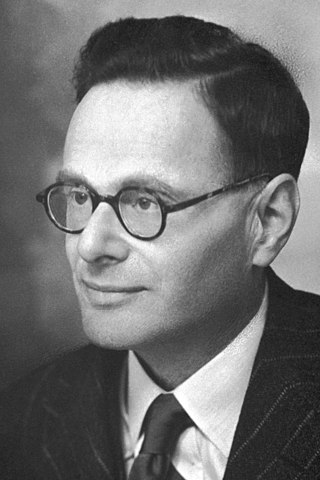
Sir Hans Adolf Krebs, FRS was a German-British biologist, physician and biochemist. He was a pioneer scientist in the study of cellular respiration, a biochemical process in living cells that extracts energy from food and oxygen and makes it available to drive the processes of life. He is best known for his discoveries of two important sequences of chemical reactions that take place in the cells of nearly all organisms, including humans, other than anaerobic microorganisms, namely the citric acid cycle and the urea cycle. The former, often eponymously known as the "Krebs cycle", is the sequence of metabolic reactions that allows cells of oxygen-respiring organisms to obtain far more ATP from the food they consume than anaerobic processes such as glycolysis can supply; and its discovery earned Krebs a Nobel Prize in Physiology or Medicine in 1953. With Hans Kornberg, he also discovered the glyoxylate cycle, a slight variation of the citric acid cycle found in plants, bacteria, protists, and fungi.

The Royal Geographical Society (with the Institute of British Geographers), often shortened to RGS, is a learned society and professional body for geography based in the United Kingdom. Founded in 1830 for the advancement of geographical sciences, the society has 16,000 members, with its work reaching the public through publications, research groups and lectures.

Sir Alan Roy Fersht is a British chemist at the MRC Laboratory of Molecular Biology, Cambridge, and an Emeritus Professor in the Department of Chemistry at the University of Cambridge. He was Master of Gonville and Caius College, Cambridge from 2012 to 2018. He works on protein folding, and is sometimes described as a founder of protein engineering.

John Zachary Young FRS, generally known as "JZ" or "JZY", was an English zoologist and neurophysiologist, described as "one of the most influential biologists of the 20th century".

The Biochemical Journal is a peer-reviewed scientific journal which covers all aspects of biochemistry, as well as cell and molecular biology. It is published by Portland Press and was established in 1906.
The Royal Society of Tropical Medicine and Hygiene, more commonly known by its acronym RSTMH, was founded in 1907 by Sir James Cantlie and George Carmichael Low. Sir Patrick Manson, the Society's first President (1907–1909), was recognised as "the father of tropical medicine" by his biographer. He passed the post on to Sir Ronald Ross, discoverer of the role of mosquitoes in the transmission of malaria.
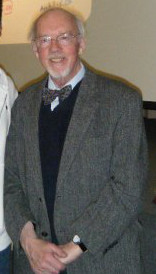
Sir Hans Leo Kornberg, FRS was a British-American biochemist. He was Sir William Dunn Professor of Biochemistry in the University of Cambridge from 1975 to 1995, and Master of Christ's College, Cambridge from 1982 to 1995.
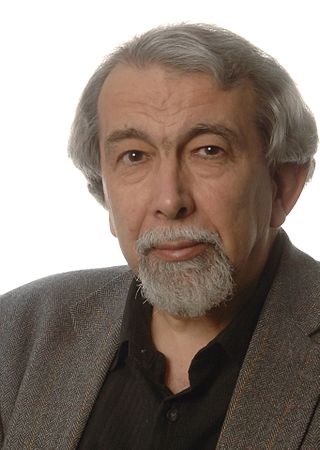
Sir Thomas Leon Blundell, is a British biochemist, structural biologist, and science administrator. He was a member of the team of Dorothy Hodgkin that solved in 1969 the first structure of a protein hormone, insulin. Blundell has made contributions to the structural biology of polypeptide hormones, growth factors, receptor activation, signal transduction, and DNA double-strand break repair, subjects important in cancer, tuberculosis, and familial diseases. He has developed software for protein modelling and understanding the effects of mutations on protein function, leading to new approaches to structure-guided and Fragment-based lead discovery. In 1999 he co-founded the oncology company Astex Therapeutics, which has moved ten drugs into clinical trials. Blundell has played central roles in restructuring British research councils and, as President of the UK Science Council, in developing professionalism in the practice of science.
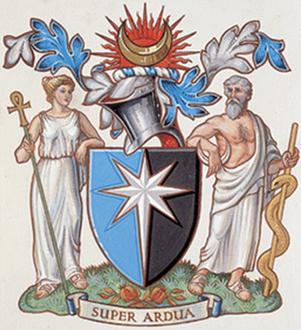
The Royal College of Obstetricians and Gynaecologists (RCOG) is a professional association based in London, United Kingdom. Its members, including people with and without medical degrees, work in the field of obstetrics and gynaecology, that is, pregnancy, childbirth, and female sexual and reproductive health. The college has over 16,000 members in over 100 countries with nearly 50% of those residing outside the British Isles. Her Royal Highness the Princess of Wales became the RCOG's patron in 2018.
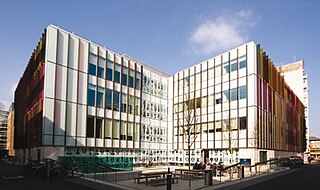
The Department of Biochemistry of Oxford University is located in the Science Area in Oxford, England. It is one of the largest biochemistry departments in Europe. The Biochemistry Department is part of the University of Oxford's Medical Sciences Division, the largest of the university's four academic divisions, which has been ranked first in the world for biomedicine.
Philip Handler was an American nutritionist, and biochemist. He was President of the United States National Academy of Sciences for two terms from 1969 to 1981. He was also a recipient of the National Medal of Science.
Sir Philip Cohen is a distinguished British biochemist known for his extensive contributions to the field of biochemistry, especially to the understanding of the role of reversible protein phosphorylation in cell regulation.
Portland Press Limited is the wholly owned publishing subsidiary of The Biochemical Society. It is a publisher of journals and books in the cellular and molecular life sciences. The surplus from the sales of its publications are returned to the scientific community via the activities of The Biochemical Society.
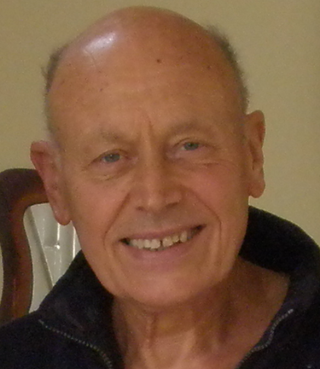
James Barber was a British senior research investigator and emeritus Ernst Chain professor of biochemistry at Imperial College London, Visiting Professor at the Polytechnic University of Turin and Visiting Canon Professor to Nanyang Technological University (NTU) in Singapore.
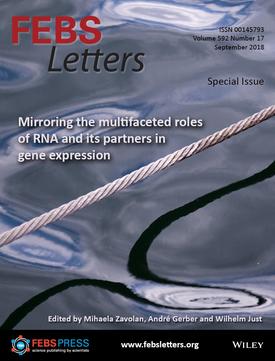
FEBS Letters is a not-for-profit peer-reviewed scientific journal published on behalf of the Federation of European Biochemical Societies (FEBS) by Wiley. It covers all aspects of molecular biosciences, including molecular biology and biochemistry. The aim of the journal is to publish primary research in the form of Research Articles, Research Letters, Communications and Hypotheses, as well as secondary research in the form of Review articles. The journal also publishes a News and Views column called "The Scientists' Forum". The editorial office of FEBS Letters is based in Heidelberg, Germany. The journal income is reinvested in science.

Bioscience, Biotechnology, and Biochemistry is a monthly, peer-reviewed, scientific journal published by the Japan Society for Bioscience, Biotechnology and Agrochemistry, of which it is the official journal. It was established in 1924 as Bulletin of the Agricultural Chemical Society of Japan, which was renamed to Agriculture and Biological Chemistry in 1961. The journal took its current name in 1991.

Laurence Harris Pearl FRS FMedSci is a British biochemist and structural biologist who is currently Professor of Structural Biology in the Genome Damage and Stability Centre and was Head of the School of Life Sciences at the University of Sussex.
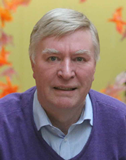
Anthony Watts is a British biochemist and Professor of Biochemistry at the University of Oxford and C W Maplethorpe Fellow in Biological Sciences and tutor at St. Hugh's College, Oxford. He is a fellow of the Royal Chemical Society, the Institute of Physics, Royal Society of Biology and Biophysical Society. He was managing director of the European Biophysics Journal, and is a co-opted member of the European Biophysical Societies' Association (EBSA), chair of the British Biophysical Society and chair of the Scientific Committee for the IUPAB/EBSA/BBS/IoP Biophysics congress, 2017. He was President of EBSA (2017-2019) and elected President-elect of IUPAB in 2021.
The Portland Press Excellence in Science Award was an annual award instituted in 1964 to recognize notable research in any branch of biochemistry undertaken in the UK or Republic of Ireland. It was initially called the CIBA Medal and Prize, then the Novartis Medal and Prize. The prize consists of a medal and a £3000 cash award. The winner is invited to present a lecture at a Society conference and submit an article to one of the Society's publications. Notable recipients include the Nobel laureates John E. Walker, Paul Nurse, Sydney Brenner, César Milstein, Peter D. Mitchell, Rodney Porter, and John Cornforth.

Ali Akbar Moosavi-Movahedi is an Iranian biophysicist, and biophysical chemist at the Institute of Biochemistry and Biophysics, University of Tehran. He is the founder of the Iran Society of Biophysical ChemistryArchived 2014-09-04 at the Wayback Machine. He is the fellow of The World Academy of Sciences (TWAS), fellow of Islamic World Academy of Sciences (IAS), and a member of the Islamic Republic of Iran Academy of Sciences.















